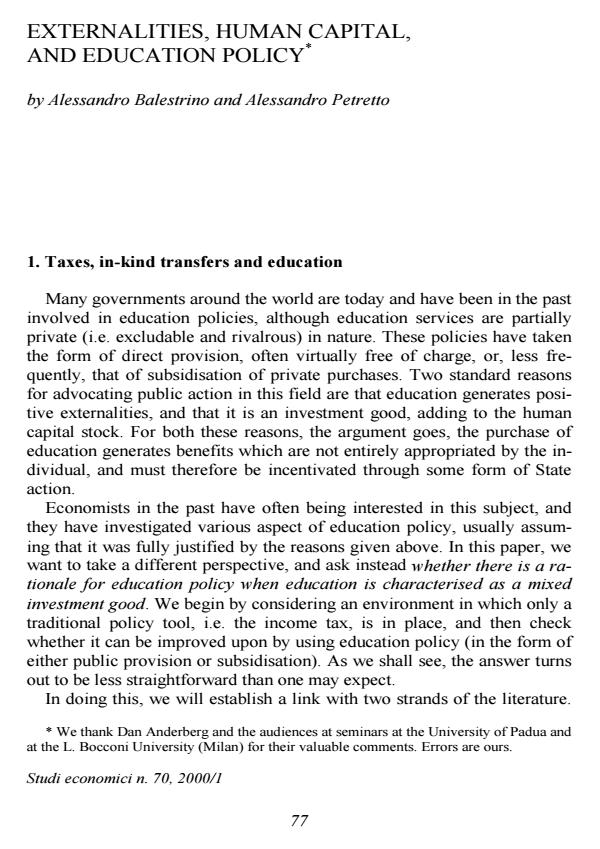Externalities Human Capital, and Education Policy
Titolo Rivista STUDI ECONOMICI
Autori/Curatori Alessandro Balestrino, Alessandro Petretto
Anno di pubblicazione 1 Fascicolo 2000/70 Lingua Italiano
Numero pagine 18 P. Dimensione file 83 KB
DOI
Il DOI è il codice a barre della proprietà intellettuale: per saperne di più
clicca qui
Qui sotto puoi vedere in anteprima la prima pagina di questo articolo.
Se questo articolo ti interessa, lo puoi acquistare (e scaricare in formato pdf) seguendo le facili indicazioni per acquistare il download credit. Acquista Download Credits per scaricare questo Articolo in formato PDF

FrancoAngeli è membro della Publishers International Linking Association, Inc (PILA)associazione indipendente e non profit per facilitare (attraverso i servizi tecnologici implementati da CrossRef.org) l’accesso degli studiosi ai contenuti digitali nelle pubblicazioni professionali e scientifiche
In this paper we discuss the interaction between optimal linear income taxation and education policy. Education is characterised as a mixed investment good: it has both private and public components and affects utility only indirectly via the wage rate. First, we show that, in order to boost the purchase of marketed education - thereby enjoying a larger public good effect and a stronger investment effect - the tax system loses progressivity with respect to the standard case. Second, we derive a sufficient condition for public provision of education, or alternatively, for price subsidisation, to be welfare-improving. We argue that the characterisation of education as an investment good generating positive esternalities does not make obvious that it should be object of a dedicated policy; indeed, it might suggest that the purchase of marketed education is supported by the income tax schedule alone. We also briefly spell out some implications of our analysis for the negative income tax schemes. JEL Classification: H42, I28;
Alessandro Balestrino, Alessandro Petretto, Externalities Human Capital, and Education Policy in "STUDI ECONOMICI " 70/2000, pp , DOI: